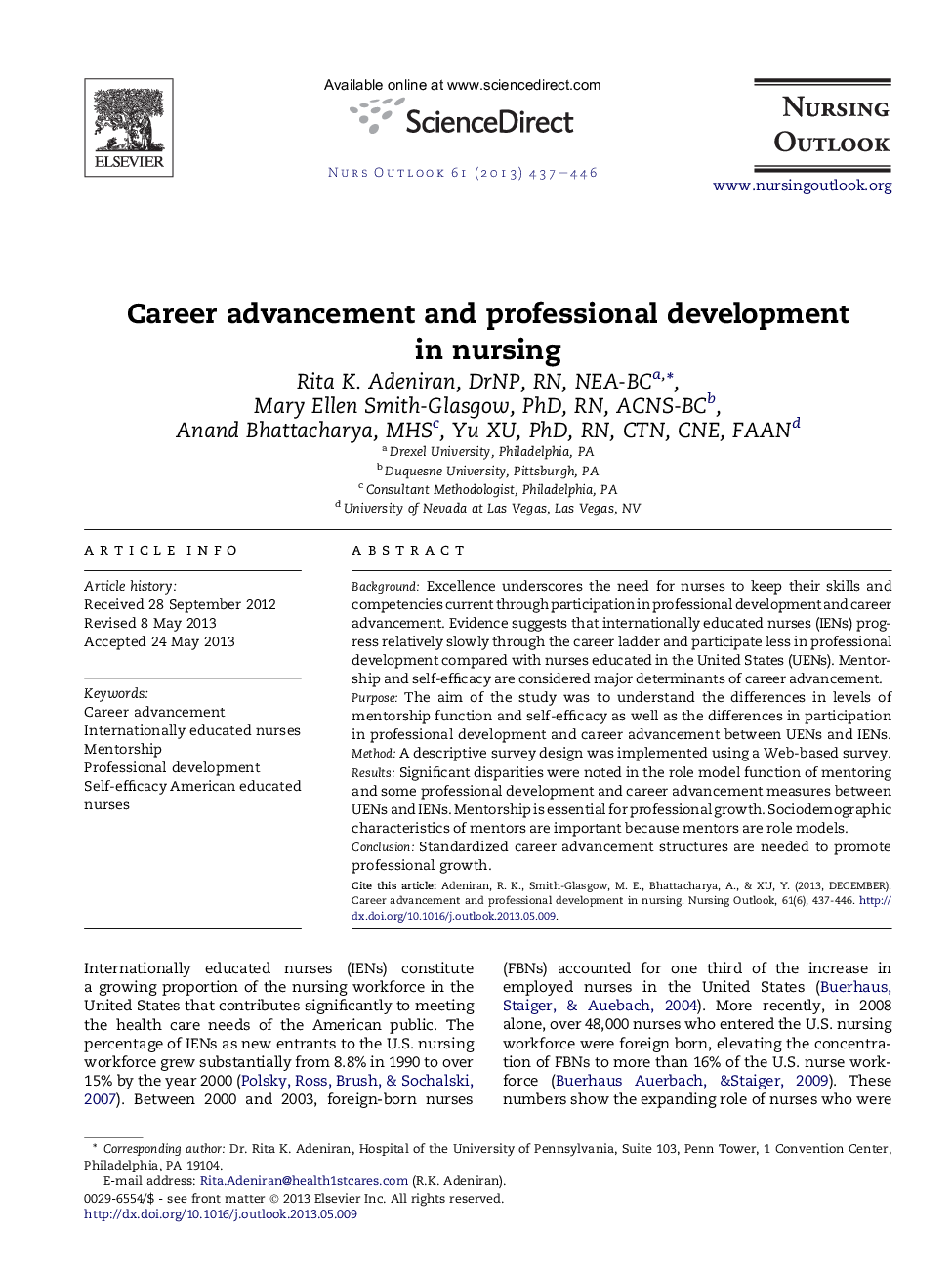| Article ID | Journal | Published Year | Pages | File Type |
|---|---|---|---|---|
| 2673321 | Nursing Outlook | 2013 | 10 Pages |
BackgroundExcellence underscores the need for nurses to keep their skills and competencies current through participation in professional development and career advancement. Evidence suggests that internationally educated nurses (IENs) progress relatively slowly through the career ladder and participate less in professional development compared with nurses educated in the United States (UENs). Mentorship and self-efficacy are considered major determinants of career advancement.PurposeThe aim of the study was to understand the differences in levels of mentorship function and self-efficacy as well as the differences in participation in professional development and career advancement between UENs and IENs.MethodA descriptive survey design was implemented using a Web-based survey.ResultsSignificant disparities were noted in the role model function of mentoring and some professional development and career advancement measures between UENs and IENs. Mentorship is essential for professional growth. Sociodemographic characteristics of mentors are important because mentors are role models.ConclusionStandardized career advancement structures are needed to promote professional growth.
